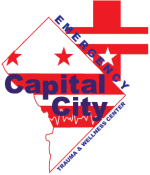How young people on the front lines of mental health are making a difference (and what you can do to help!)
MHA Admin
Mon, 03/25/2024 – 12:59
When I think of youth in the U.S., my first thought isn’t typically of young people using their voices to advocate for mental health accessibility and systematic reform. Thanks to the members of Mental Health America’s Youth Policy Accelerator (YPA), I’ve learned that young people are not only aware of the current challenges in mental health care but have also come up with real solutions.
The 2023 YPA cohort consists of ten advocates aged 18-25 who have led inspiring mental health policy initiatives. Each member has a story filled with passion, ambition, and fearlessness that they use to transform mental health resources in their communities. More importantly, they recognize the importance of mental health policy change in improving their peers’ lives and shaping the lives of generations after them.
Their knowledge and understanding, driven by their lived experiences as young people, have led them to use their voices and enter spaces that historically excluded young people.
Using personal challenges to reimagine support for youth by youth
With a wide range of experiences and identities, YPA members’ stories demonstrate how damaging a lack of resources can be to the mental health and overall development of young people. While each member has a unique experience, the key theme throughout all of their stories is that they were forced to go through things alone and without adequate support. Although they did not initially have access to peer support programming, they recognized the value of having someone they could relate to with shared life experiences. Absent resources, they became determined to expand the reach of evidence-based practices like peer support and ensure that young people would have better access to mental health care overall across a range of areas and spaces.
Changing the spaces and systems that serve young people
Young people spend much of their time in schools, and YPA member Isabel Ohakamma noticed the negative effects she and her peers faced during COVID-19 quarantine efforts. She recognized the need for support within her immediate environment and used her voice to encourage changes within her school. As a result, she helped create a social club for classmates that encouraged various activities to promote communication and fellowship. Isabel’s activities club even included involvement from school counselors who offered their services to group participants at no cost.
For other members, like Tianna Celis-Webster, personal involvement with multi-system care has given them a unique opportunity to encourage system-wide reform. Tianna’s multi-system involvement at a young age opened her eyes to the experiences of other young people in similar positions. Now, she works within systems with EPIC ‘Ohana Inc. to advocate for other youth involved in the foster care system.
Creating community networks of support
YPA members have also led initiatives to make support available outside of schools and made system changes to ensure young people can receive support where and when they want it. For example, Trace Terrell struggled with depression and suicidal ideation before he began volunteering for YouthLine (a teen-to-teen crisis support line) at the age of fourteen. His work as a sympathetic listener helped him understand the importance of peer-to-peer support, eventually leading him to understand the full scope of public health concerns that many of his peers faced.
In Colorado, Aimee Resnick witnessed the devastating effects of a lack of mental health support when one of her peers died by suicide at a young age. Wanting to take action to prevent future tragedies, she turned to policy to make a difference. Through her leadership and collaboration with others, she helped pass HB22-1052, Promoting Crisis Services to Students. This bill requires student IDs in Colorado to include information about crisis resources, giving students knowledge that there are places they can turn to when they are struggling.
Advancing diversity and equity in mental health resources
Saiarchana Darira grew up in an area that lacked diversity and, therefore, cultural awareness. Her experience with mental health support often involved feelings of disconnection and isolation because mental health providers did not understand her background and identity. By championing the diversification and cultural education of the mental health workforce, she has been a voice for young people who feel misunderstood due to their cultural and ethnic backgrounds. Further, she has been a leader in climate activism, using her training as a meditation instructor to support youth dealing with eco-anxiety.
Take or make space for young people to have a seat at the table
Youth continue to prove that they are capable of participating in policy and advocacy. They possess the knowledge and understanding of what it takes to make lasting foundational changes to empower themselves and their peers. If you are a young person, know you belong in every room where decisions about youth mental health are made. If you are an adult ally, you can leverage your power so that the leadership demonstrated by YPA members and other youth becomes the norm, not the exception.







